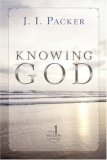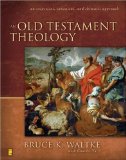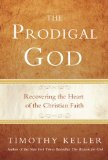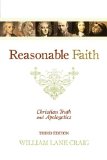Whenever I encounter a new (to me) interpretation of a familiar passage of Scripture, I’m generally skeptical of its validity. I hope that this reticence is due less to my arrogance and more to my understanding that “there is nothing new under the sun.” That doesn’t mean I’m not open to hearing it out, because something may be new to me but not actually new, but I’ve studied enough to know that novel ideas are generally bad ideas when it comes to biblical interpretation.
But when my friend Lacey came up to me some time ago and mentioned a new take on Luke 21:1-4 that she had heard in a Matt Chandler sermon (date: 8/9/09), I’ll admit I was intrigued. Let me give you the verses (TNIV):
As Jesus looked up, he saw the rich putting their gifts into the temple treasury. He also saw a poor widow put in two very small copper coins, “Truly I tell you, ” he said, “this poor widow has put in more than all the others. All these people gave their gifts out of their wealth; but she out of her poverty put in all she had to live on.”
These verses are generally taken as praising the woman for her sacrificial giving. If you’ve been in church long enough, you’ve heard it preached that way quite a few times. I’d venture to guess that many a building campaigns have been helped by preaching this passage.
Chandler, however, offered a different take on it. Rather than praising the widow for her giving, Jesus was actually lamenting that she gave (note: the word “praise” doesn’t show up here). If you read the passages immediately before and after this one, you’ll see that Jesus denounces the teachers of the law in part because “they devour widows’ houses and for a show make lengthy prayers” (20:47) and then goes on to predict the destruction of the Temple in chapter 21- the same Temple the woman was supporting with her offering. Chandler argues that given the surrounding context, Jesus couldn’t have been praising the woman for giving her money to the very Temple he was denouncing. Instead, he was lamenting. I don’t remember if Chandler specified if Jesus was upset at her or upset at the Temple authorities for bilking this woman out of what little money she had, though my guess is the latter.
Chandler likens this passage to the televangelists who guilt old ladies into giving up their retirement checks to fund their lavish lifestyle- surely a practice Jesus detests. (Side note: whether or not his exegesis is right, I’m loving Chandler’s hermeneutics here.)
What do I make of this? To be honest, I’m not sure. I’m a huge fan of reading passages in light of the surrounding context. You can see an earlier post here of how I think the biblical writers can use narrative to make their point rather than stating things explicitly. So Chandler has that going for him here. But, I think literary context could possibly work the other way, too. Is it possible that what we have here is actually a juxtaposition (one of my favorite words in studying the Bible, by the way)? Is it possible that Jesus is purposely contrasting the widow’s sacrificial life with the greed of the teachers of the law?
Let me address a couple other points Chandler uses in his favor. One, he states that in Luke’s gospel, when Jesus commends someone for a righteous act, he follows it up with a statement like “go and do likewise” or something along those lines (see the Good Samaritan). Such a statement is missing here, which Chandler claims works in favor of his interpretation. However, that isn’t entirely true. The story of Zacchaeus (Luke 19:1-10) is one example where Jesus praises someone’s action without telling others to do the same.
Two, while it’s true that Jesus declares the impending destruction of the Temple, he also commanded a man healed of leprosy to go tell the priest and make the proper sacrifices (5:14). As far as the widow is concerned, the Temple is the place where the righteous go and worship. The Temple had not been destroyed; Jesus had not died and risen from the dead. Shoot- even Paul went to the Temple and even intended to make an offering (before he was arrested) in Acts 21:26.
After listening to the sermon I popped open some commentaries to see what they had to say. I only own 1 Luke commentary, but I own a few on Mark, who records this same story in Mark 12:41-44 along with the same surrounding passages. None of the commentators took the interpretation that Chandler did. That doesn’t mean he’s wrong, of course, because commentators are capable of rehashing traditional but wrong exegesis, perhaps especially prone in a case like this where the interpretation seems “obvious”. It does make me wonder what sources Chandler used, though (side note: I’d love it if pastors shared this kind of information once in a while; I wonder if he ever has).
So, I’m not convinced. Yet. I’ll admit that Chandler has successfully convinced me that his interpretation is possible, if not plausible. The immediate context does lend him support, though as I noted above I think it could (perhaps not ‘should’) be understood differently. I’d be very interested to hear what others have to say about this, so feel free to leave any comments you might have. I may very well be missing something that a different set of eyes might pick up.










